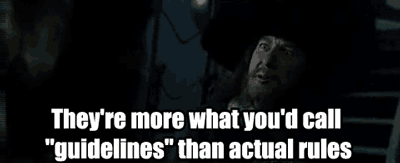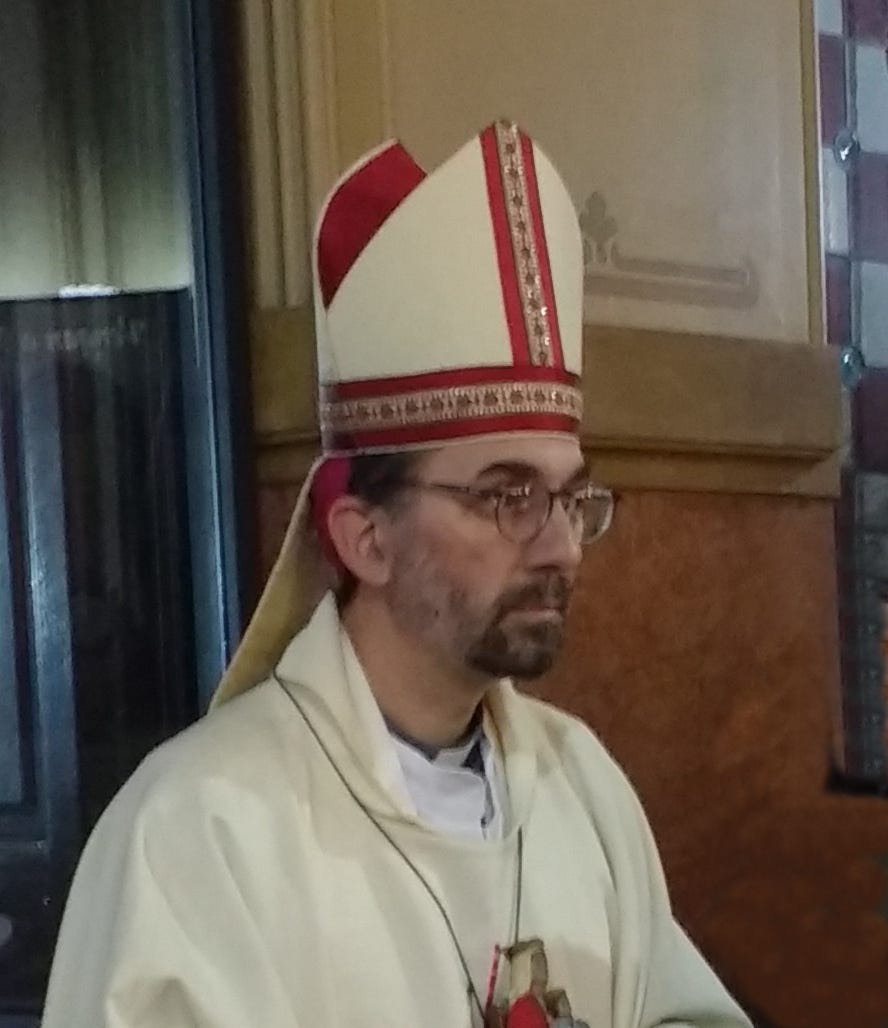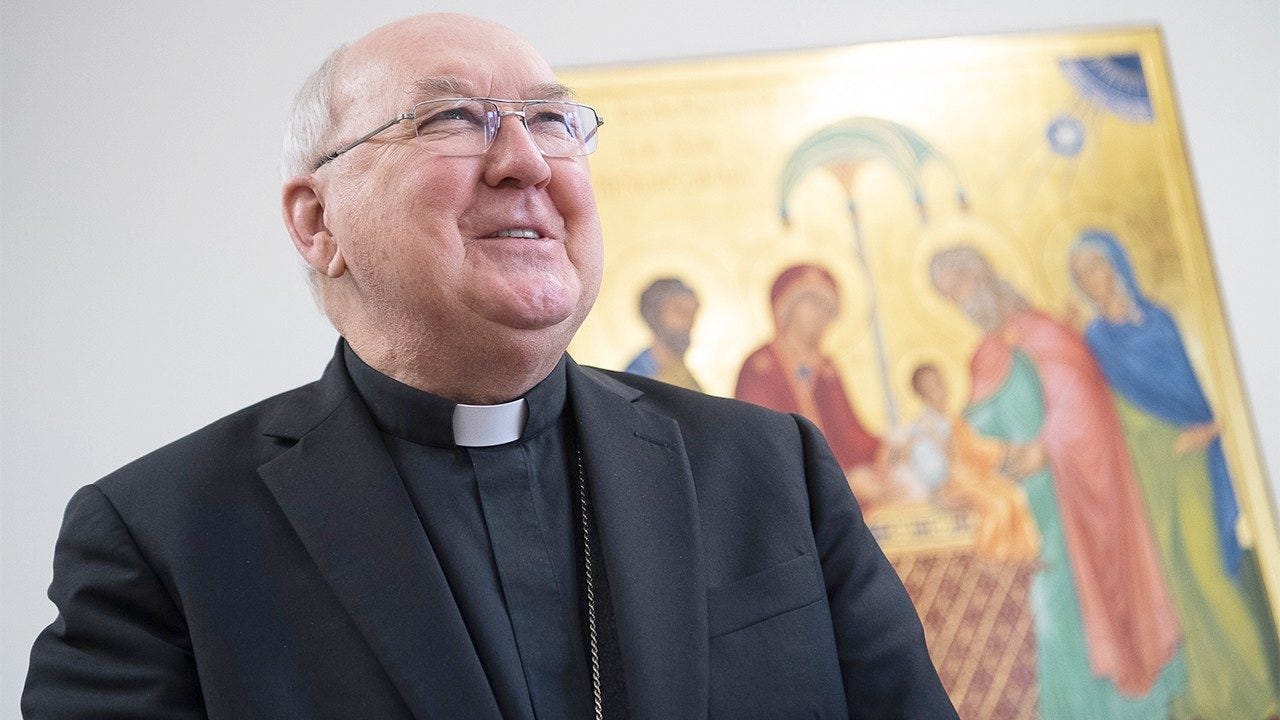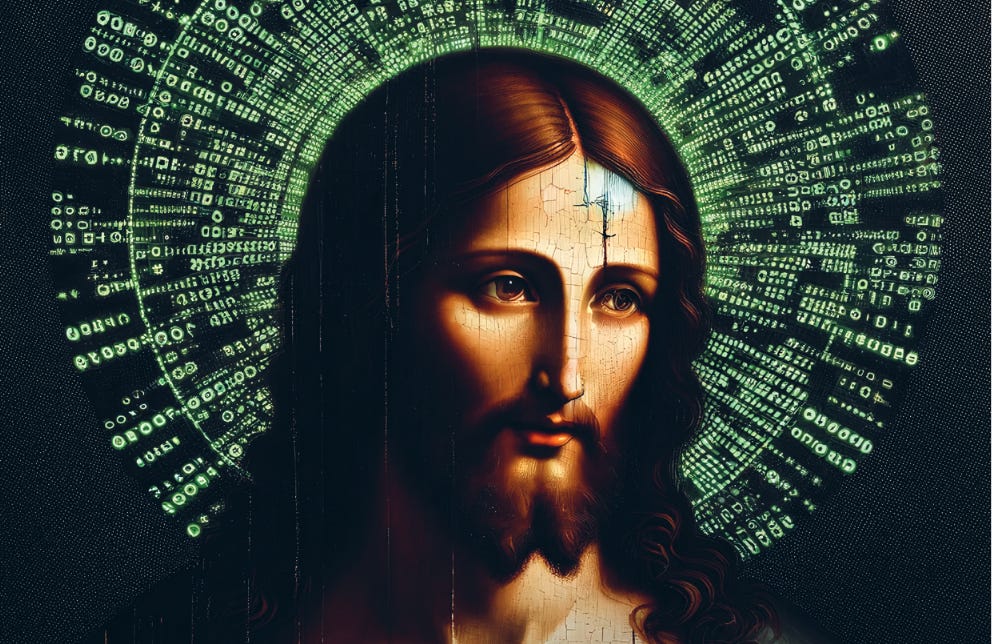Happy Friday friends,
It’s the first Friday in Lent, so I hope you’re getting into the spirit of the occasion.
Catholics, as a people, take fasting and abstinence seriously — it’s one of the things we’re good at. And it isn’t something we should feel backward about. But neither should we give into the caricature that the Church just wants us to be a bit miserable, from time to time, because it’s good for us.
On the contrary, we all need to spend time in the desert, metaphorically, seeking for God, straining to listen to Him in our lives, and learning and relearning the truth that we do not and cannot live on bread alone, or on barbecue, however much we may like to try. Lent is also, fundamentally, a time of spiritual warfare, and preparation for the explosive victory that is Easter. One doesn’t make sense without the other.
Of course, we Catholics also tend to be good at getting a little obsessive about the details and the rules. So, on Ash Wednesday, we published a primer on fasting and abstinence, to help you keep clear on what’s expected, what’s suggested, and what the rules are.
As is customary at the beginning of Lent, some people have been asking about the mystery of ash smudging vs. ash sprinkling: If you want to know what that’s all about, we looked into it for Lent last year.
The News
We told you last week that The Pillar has signed a Ukrainian correspondent, and we’re proud to bring you his first dispatch today.
This week, he writes about how we got to this point, and examines Vladimir Putin’s much discussed but little understood concept of Russkiy-mir — the Russian world — and how Vatican diplomacy has played into Moscow’s religious and political worldview.
This is essential context for what is happening. Read the whole thing here.
—
Religion is a big part of understanding the history and culture of Ukraine, and its relationship with Russia. While there is the Ukrainian Greek Catholic Church, Ukraine is majority Orthodox and is home to two Orthodox Churches.
The Ukrainian Orthodox Church is under the ecclesiastical jurisdiction of the Patriarchy of Moscow, which claims spiritual authority over the neighboring country. The Orthodox Church of Ukraine is an independent Church, led by its own patriarch. In 2019, the Patriarch of Constantinople, together with many of the oldest and largest Orthodox Churches, recognized the independent OCU, causing Moscow to break communion with nearly half of the world’s Orthodox.
Since the invasion began last week, Ukrainian Christians of all Churches — Catholic, OCU and UOC — have been calling on the Patriarch Kirill of Moscow to denounce the war and call for peace. Instead, Kirill said that Ukrainians and Russians are one people, and called to Christian unity — unity under his authority.
The Orthodox landscape in Ukraine is undergoing real-time change, and it will likely continue to shift as Russian forces continue their attacks. The implications of these religious shifts for the political situation are real — both in Ukraine and in Russia.
—
Staying in Europe, as the global synod on synodality rumbles on, many Catholics remain a little leery of the process, worried that it is destined to lead to a closed-shop final phase in Rome where some will try to foist a revisionist agenda on the global Church — rather as was attempted at the Synod on the Amazon in 2019.
Those concerns are often rooted in the German “Synodal Way,” which continues to call for married clergy, women’s ordination, same-sex blessings in churches, and a range of other “reforms” which have been repeatedly ruled out by Pope Francis.
The results are fascinating. Most people know anecdotally that the Church in Germany is rich but losing members fast, but I am not sure it’s widely realized just how rich the Germans are…or how fast their presbyterate is shrinking…
The German bishops have long insisted that married priests are essential for responding to the sexual abuse crisis. Looking at the hard data, I would say there might be… other motivations for that insistence.
Read the whole thing and draw your own conclusions.
—
The Church has come a long way since the sexual abuse crisis of the early 2000s. Since then, it has made some big changes, and seen some big setbacks — think of the Dallas Charter, then the McCarrick scandal, followed by Pope Francis’ reforms in Vos estis lux mundi.
But hard cases are still emerging, and many victim-survivors are still hurting and waiting to be heard. So how can the Church do more?
The Pillar’s Charlie Camosy talked this week with Daniel Philpott, a professor of political science at the University of Notre Dame. Philpott studies reconciliation efforts after events of unspeakable trauma.
He talked about truth and reconciliation commissions, the work they have done to heal societies after the horrors of apartheid and genocide, and what the Church can learn from those experiences. He also talked about the difficulty of discussing forgiveness in the context of the unforgivable.
“Christianity alters the plausibility of forgiveness, especially in settings of massive violence. The reason is that, in contrast to a secular perspective, another party is involved – God, the creator and redeemer of the universe, who, unlike any earthly person or reality, is infinitely greater than the evil involved. In the incarnation, God himself becomes a victim who forgives his slayers. This changes the picture.
Grace makes possible what otherwise might not be possible. Ordinary people on the ground in countries grappling with violent pasts have shown us this. The Holy Spirit has inspired us to believe that God’s will to restore the world has relevance even in its darkest places.
And if that cannot be relevant in the Church, where else can it be?”
This interview is fascinating. Read the whole thing.
—
—
Judges in the Vatican financial trial on Tuesday issued their decisions, finally, on a raft of pretrial motions filed by defense attorneys since the court process began in July 2021.
Even for people with more than a passing interest in the scandal and trial, including the judges, the last seven months of procedural objections and arguments have been a bit of a slog.
Well, JD was wrong. He’s a cynic, you see, while I remained both hopeful and optimistic.
One of the obvious strategies of the defendants’ legal teams has been to discredit the entire Vatican judiciary, painting it as a kangaroo court without proper laws or rights to due process — and they have managed to get significant media buy-in for this narrative, especially among some sections of the Italian press.
Well, the judges took those arguments and gave them what I think it is fair to call a judicial spanking. But if you haven’t read much about it, that’s probably because the decision itself is a very long read — and requires a grasp of how Vatican law works to unpack.
We took the decision apart for you and put together what is itself, I grant you, something of a long read. But real justice is only ever half about the outcome: the other half is process. Seeing that due process has been followed is important.
This is some deep-track coverage, and you won’t get it anywhere else. Read it here.
A matter of time
In just over a week’s time, the clocks go forward in our biannual act of horological hubris which we absurdly call “daylight saving time.” Let me air an unpopular view: I hate this.
For a start, it’s the nonsense notion that we are “saving” daylight. We have the daylight we have, it changes with the seasons and the angle of the Earth’s axis as we revolve around the sun. We choose to backload that daylight toward the end of the day.
And this is of questionable benefit — at best.
There is some evidence that traffic accidents, especially those involving pedestrians, are mitigated somewhat by having it stay lighter later (by the clock, if not in reality), but at least from what I can tell, this is probably offset by the nearly 25% spike in hospital admissions for heart attacks on the Monday after the clocks “spring forward.”
Oh, and did you know that federal law allows for shift workers to get stifled for the missing hour on that magical evening when we “save daylight”?
But it’s not the practical effects of monkeying with the clock that annoys me so much. It’s the principle of the thing.
The great existential reality of time is that we cannot control it; our attempts to conceive of it and measure it are a fascinating part of our human condition. This, by the way, is why mechanical watches are so cool — they are attempts to render tangible with gears and springs a concept which is almost impossible for us to comprehend.
Our attempts to anchor our perception of reality to the world around us matter, and help us understand our place in the created order. Our concept of 12:00 isn’t just a number, it is our best grasp on a fleeting reality, a fixed point of relative perception — the middle of the solar day. The idea of timezones, Greenwich Mean Time, and everything else is an expression of a unified created order in which we exist, but can’t control.
It seems far more reasonable, to me anyway, that we might just decide we want to start our work and school days an hour earlier for half the year, if we really think it’s so important to have more light to work with. Or we could just say the hell with it and change the clocks to suit our fancy, because in the end all of existence is just what we say it is, right?
It’s chaos, and it’s a farce — one that most of the world doesn’t go in for, by the way: Changing the clocks is an uniquely Western piece of horological hubris.
But it’s also an act of incredible existential narcissism. It rejects the greatest lesson time has for us: we can’t control it. Properly understood, time is the great reminder that we have a destiny we are hurtling towards — and a God waiting to meet us there.
—
A final note: those of you who have been with us a while know that for Lent and Advent we nominate a charity to which we give $10 for every new paying subscription we get.
We are doing that this Lent as well, and in the light of present circumstances we will be sending the money to the Ukrainian Catholic Eparchy of Philadelphia’s War Victims and Humanitarian Crisis fund. We hope you’ll agree it’s a worthy cause.
But we wanted to do something else this Lent, too. So, we are also going to donate $1 to the eparchy’s Ukraine crisis fund for every person who signs up for our newsletter between Ash Wednesday and Easter, paid subscriber or not.
So if you’re reading this newsletter, and think someone else might like it too, send it to them. They can sign up for free, and we’ll make a donation. It may not be a lot, but I sincerely hope it adds up.
See you next week.
Ed. Condon
Editor
The Pillar







